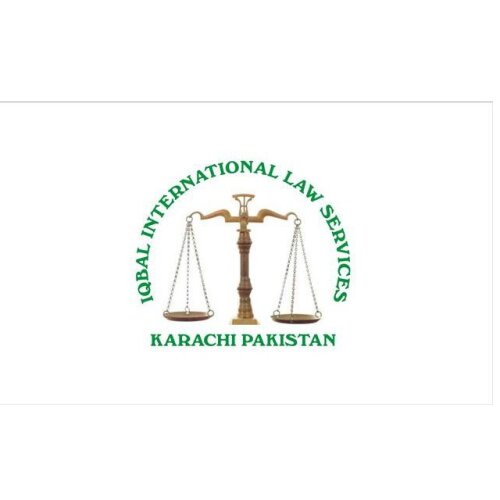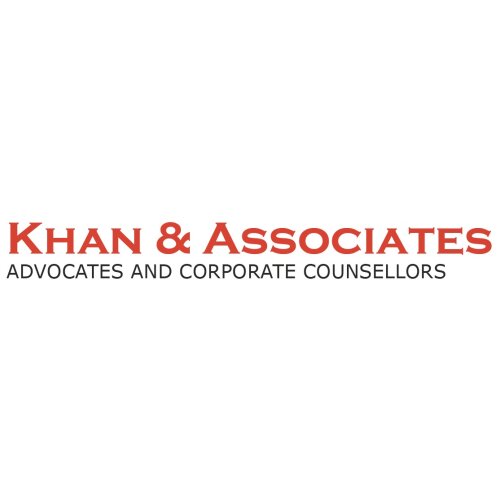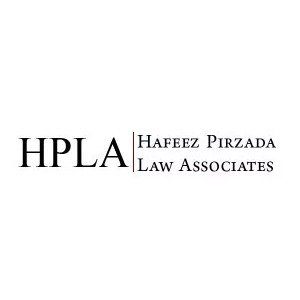Best Nonprofit & Charitable Organizations Lawyers in Pakistan
Share your needs with us, get contacted by law firms.
Free. Takes 2 min.
Or refine your search by selecting a city:
List of the best lawyers in Pakistan
About Nonprofit & Charitable Organizations Law in Pakistan
Nonprofit and charitable organizations in Pakistan play a crucial role in the development and improvement of the community through services and support in various domains like education, health, and social welfare. The legal framework governing these organizations ensures that they operate in a manner that is transparent, accountable, and beneficial to the public. This legal framework is designed to facilitate the formation, registration, regulation, and dissolution of nonprofit entities, while also addressing taxation and financial compliance issues. Nonprofits in Pakistan can take several forms, including societies, trusts, and companies limited by guarantee.
Why You May Need a Lawyer
Engaging with a lawyer is essential for various reasons when dealing with nonprofit and charitable organizations in Pakistan. Common situations include:
- Formulating the organization and selecting the appropriate legal structure to meet the organization’s objectives.
- Assisting with the registration process and ensuring compliance with relevant laws and regulations.
- Drafting and reviewing governing documents such as constitutions, bylaws, and trust deeds.
- Advising on funding agreements, contracts, and memorandums of understanding.
- Ensuring compliance with tax laws and achieving tax-exempt status.
- Navigating legal matters related to employment, intellectual property, and liabilities.
- Resolving disputes within the organization or with external parties.
Local Laws Overview
The legal landscape for nonprofit and charitable organizations in Pakistan is defined primarily by several key laws and regulatory requirements:
- The Societies Registration Act of 1860: Governs the registration of societies working for charitable purposes.
- The Trusts Act of 1882: Deals with the creation and management of trusts.
- The Companies Act, 2017: Pertains to companies categorized as not-for-profit under Section 42, requiring them to meet certain compliance standards.
- The Income Tax Ordinance, 2001: Covers tax exemptions for eligible nonprofit and charitable organizations.
- The Voluntary Social Welfare Agencies Ordinance, 1961: Regulates organizations engaged in social welfare activities.
Compliance with these laws is crucial for maintaining the legitimacy and operational capacity of a nonprofit organization in Pakistan.
Frequently Asked Questions
1. What types of nonprofit organizations can be registered in Pakistan?
Nonprofits in Pakistan can be registered as societies, trusts, or companies limited by guarantee. Each type has its own registration process and legal requirements.
2. How can a nonprofit organization achieve tax-exempt status in Pakistan?
To achieve tax-exempt status, a nonprofit must apply for approval from the Federal Board of Revenue (FBR) and comply with the conditions outlined in the Income Tax Ordinance, 2001.
3. What are the governing bodies for nonprofit organizations in Pakistan?
Depending on the legal structure, nonprofit organizations may be regulated by the Securities and Exchange Commission of Pakistan (SECP), provincial social welfare departments, or the Federal Board of Revenue (FBR).
4. Can a foreign nonprofit organization operate in Pakistan?
Yes, foreign nonprofits can operate in Pakistan, but they must register with the Ministry of Interior and comply with the relevant Pakistani laws and regulations.
5. What are the reporting requirements for nonprofits in Pakistan?
Nonprofits must maintain accurate financial records and submit annual reports, including audited financial statements, to the relevant regulatory bodies.
6. How can a nonprofit protect its intellectual property in Pakistan?
Nonprofits can register trademarks, copyrights, and patents with the Intellectual Property Organization of Pakistan to protect their intellectual property.
7. What are the employment laws applicable to nonprofits in Pakistan?
Nonprofits must comply with the employment laws, including labor rights, contracts, minimum wage requirements, and social security regulations.
8. What legal documents are essential for forming a nonprofit in Pakistan?
Essential legal documents include a memorandum of association, articles of association (for companies), trust deeds, and bylaws, depending on the legal structure chosen.
9. How long does the nonprofit registration process take in Pakistan?
The registration process duration varies depending on the type of organization and completeness of submitted documents. On average, it can take a few weeks to several months.
10. Can a nonprofit organization engage in commercial activities?
Nonprofits can engage in commercial activities if the profits are used solely for advancing the organization’s charitable objectives, and they must comply with applicable laws and regulations.
Additional Resources
For additional information and assistance, consider reaching out to the following resources:
- Securities and Exchange Commission of Pakistan (SECP)
- Federal Board of Revenue (FBR)
- Provincial Social Welfare Departments
- Pakistan Centre for Philanthropy
- Legal aid clinics specializing in nonprofit law
Next Steps
If you need legal assistance in setting up or managing a nonprofit or charitable organization in Pakistan, follow these steps:
- Identify the type of legal entity you wish to establish (e.g., society, trust, or company).
- Consult with a legal advisor specializing in nonprofit law to understand your options and requirements.
- Gather necessary documentation and fulfill registration requirements as guided by your legal advisor.
- Ensure continued compliance with relevant laws and regulations by seeking ongoing legal counsel.
Taking these steps will help ensure your organization operates legally and effectively in Pakistan.
Lawzana helps you find the best lawyers and law firms in Pakistan through a curated and pre-screened list of qualified legal professionals. Our platform offers rankings and detailed profiles of attorneys and law firms, allowing you to compare based on practice areas, including Nonprofit & Charitable Organizations, experience, and client feedback.
Each profile includes a description of the firm's areas of practice, client reviews, team members and partners, year of establishment, spoken languages, office locations, contact information, social media presence, and any published articles or resources. Most firms on our platform speak English and are experienced in both local and international legal matters.
Get a quote from top-rated law firms in Pakistan — quickly, securely, and without unnecessary hassle.
Disclaimer:
The information provided on this page is for general informational purposes only and does not constitute legal advice. While we strive to ensure the accuracy and relevance of the content, legal information may change over time, and interpretations of the law can vary. You should always consult with a qualified legal professional for advice specific to your situation.
We disclaim all liability for actions taken or not taken based on the content of this page. If you believe any information is incorrect or outdated, please contact us, and we will review and update it where appropriate.
Browse nonprofit & charitable organizations law firms by city in Pakistan
Refine your search by selecting a city.

















